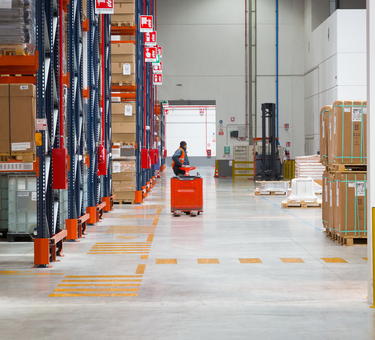E-commerce is revolutionizing retail and transforming logistics. The change is taking place slowly, but it has profound implications. Purchasing habits are shifting rapidly with an ever-larger number of consumers purchasing more goods and services online. Italy is no exception to this trend.
In order to serve consumers better and reduce costs, e-commerce logistics must be positioned in close proximity to metropolitan locations. As the landscape of logistics changes, the character of real estate is also transformed: It is expanding with a wider range of growing assets and inventories, capable of accommodating an increasing number of employees to manage shipments and returns, more energy efficient, automated, potentially integrated with other functions and developing vertically where land is scarce.
Sixty percent of logistics properties currently available are capable of meeting the requirements of e-commerce. Looking forward, hybrid buildings that can accommodate a mix of residential, commercial and logistics functions, as well as last-mile deliveries, will be critical. According to a recent McKinsey study, three models are destined to dominate distribution of the future: autonomous vehicles, drones and bicycle couriers. The first two models, characterized by advanced automation, are predicted to encompass approximately 80 percent of deliveries. Buildings will therefore need to accommodate these new delivery models.
